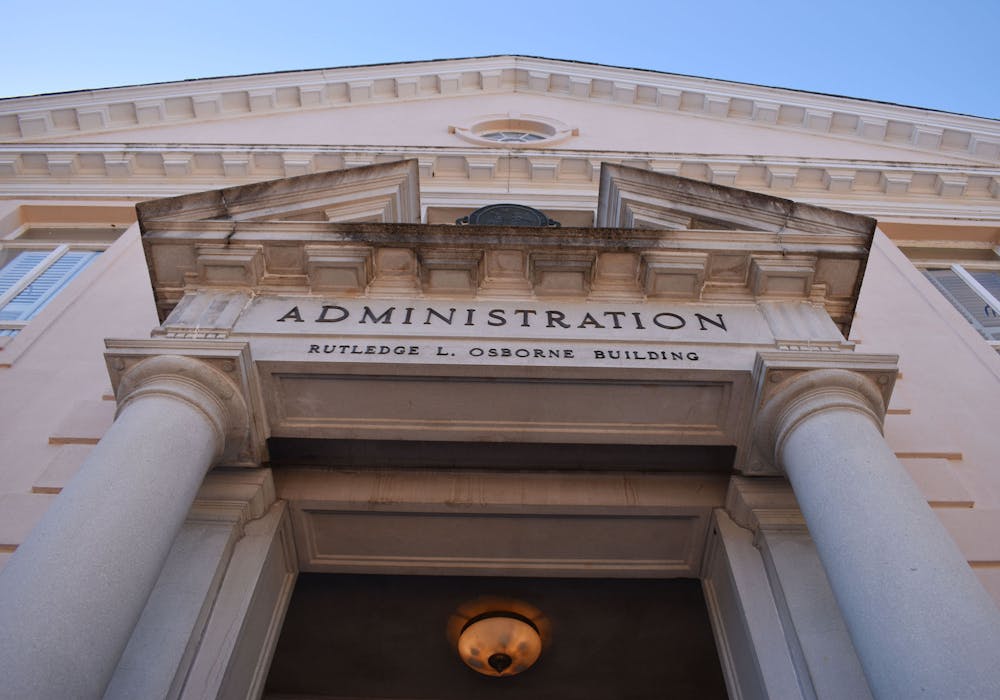Rex Tolliver, USC's vice president for Student Affairs and Academic Support, is working to reorganize mental health resources by implementing an associate vice president for student health and well-being.
According to Tolliver, the role will serve as a way to better optimize and consolidate resources for a more holistic approach. The position has not been filled yet, but Toliver said the university is currently in the process of looking for a candidate.
This new streamlined strategy for USC was inspired by the system currently in place at UNC Charlotte. Mari Ross, the associate vice chancellor for student health and student well-being, oversees all wellness aspects in order to better organize procedures. In her role, she consolidates resources so they are better allocated.
“(Ross) is the quarterback on the team, whatever analogy you want to use, but she is the supervisor of all of those areas,” Kevin Bailey, vice chancellor for student affairs at UNC Charlotte, said. “She’s been here a little over a year, and she’s the one that’s really taken it to the next level with the integration.”
Instead of five different areas of wellness — health center, counseling center, wellness promotion, REC center and disability resources — Ross' position has moved all these categories under one umbrella.
"The need to provide more adequate and I believe coordinated services around mental health and well-being," Tolliver said. "What we have done is decided to reorganize the area around student health. It will be bringing under common leadership ... and sink into a unified model"
After the hiring and onboarding of the associate vice president of student health and well-being, Tolliver said there will be an external review of the services.
“That's going to actually bring in a reviewer or two reviewers, three ... to look at our services, the way we're organized, the services that we deliver and then benchmark us against best practices and peers,” Tolliver said.
Tolliver said he also wants to address the 10-session cap and wait times for appointments that USC has. At UNC Charlotte, students have a non-explicit, eight-session cap for free appointments from the university.
Bailey said they reformed their triage assessment of health, which is the first appointment where a patient is preliminarily assessed.
“Part of that is due to what the new Center for Integrative Care, CIC, will do as a triage piece. So, what we are attempting to do is triage students into that center because I will tell you that most students don't need a multi-session appointment with a counselor,” Bailey said.
The university has allotted an additional $1 million to put into mental health resources, which President Michael Amiridis said will go toward hiring for mental health positions in response to criticisms from Imagine Carolina.
“The issue was professionals. It was not a space issue, it's hiring people,” Amiridis said.
Tolliver said the money will also go to providing opportunities to assess how to better utilize existing resources in addition to hiring. This could look like putting more appointments towards specific times of the day when students are more likely to schedule with mental health services.
“In many ways, we have adequacy in some areas. What we don’t have is optimization in others,” Tolliver said.

Bailey said Tolliver is heading toward doing the right thing by implementing UNC's holistic care strategy at USC.
“I would give props to Rex for going in this direction," Baily said. "This is a growing thing where people in my role are putting together these health and well-being units.”
Tolliver said his main goal is to reorganize the service with the best student interest in mind.
"What I've asked people to do since I've been here is, 'Can we reorient the work that we do from a students-first perspective?'" Toliver said. "If we're in the space and in the place of students, how would we like this service to be delivered? What would we like to receive when we come?"

